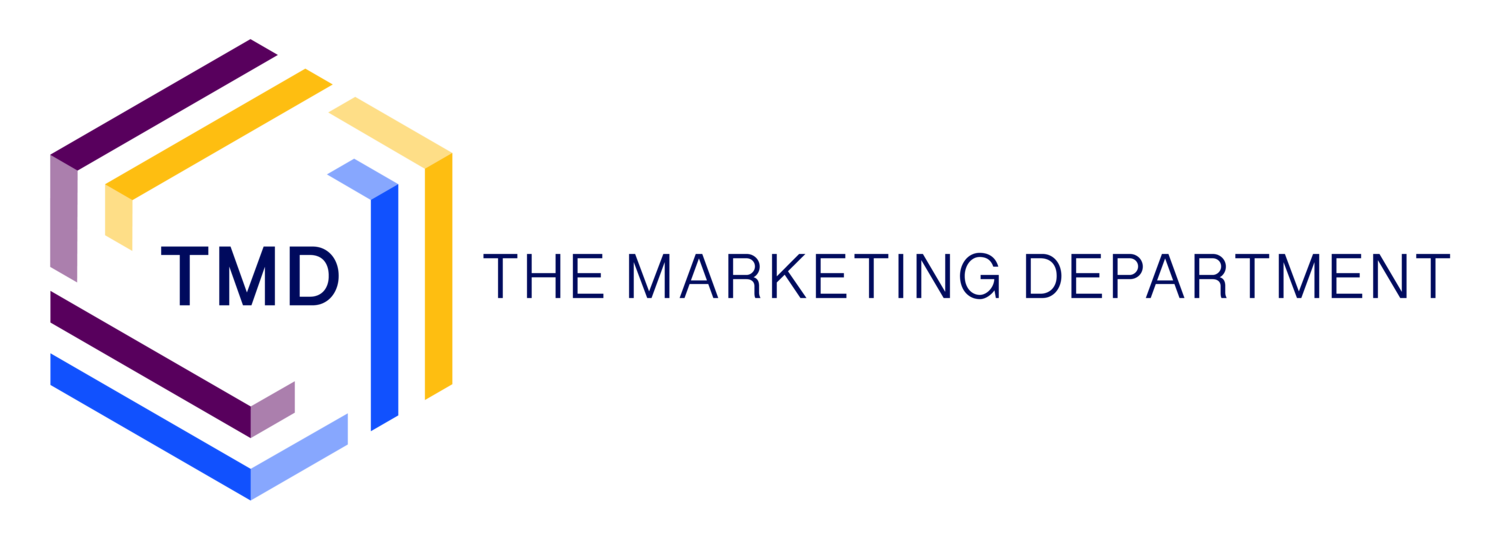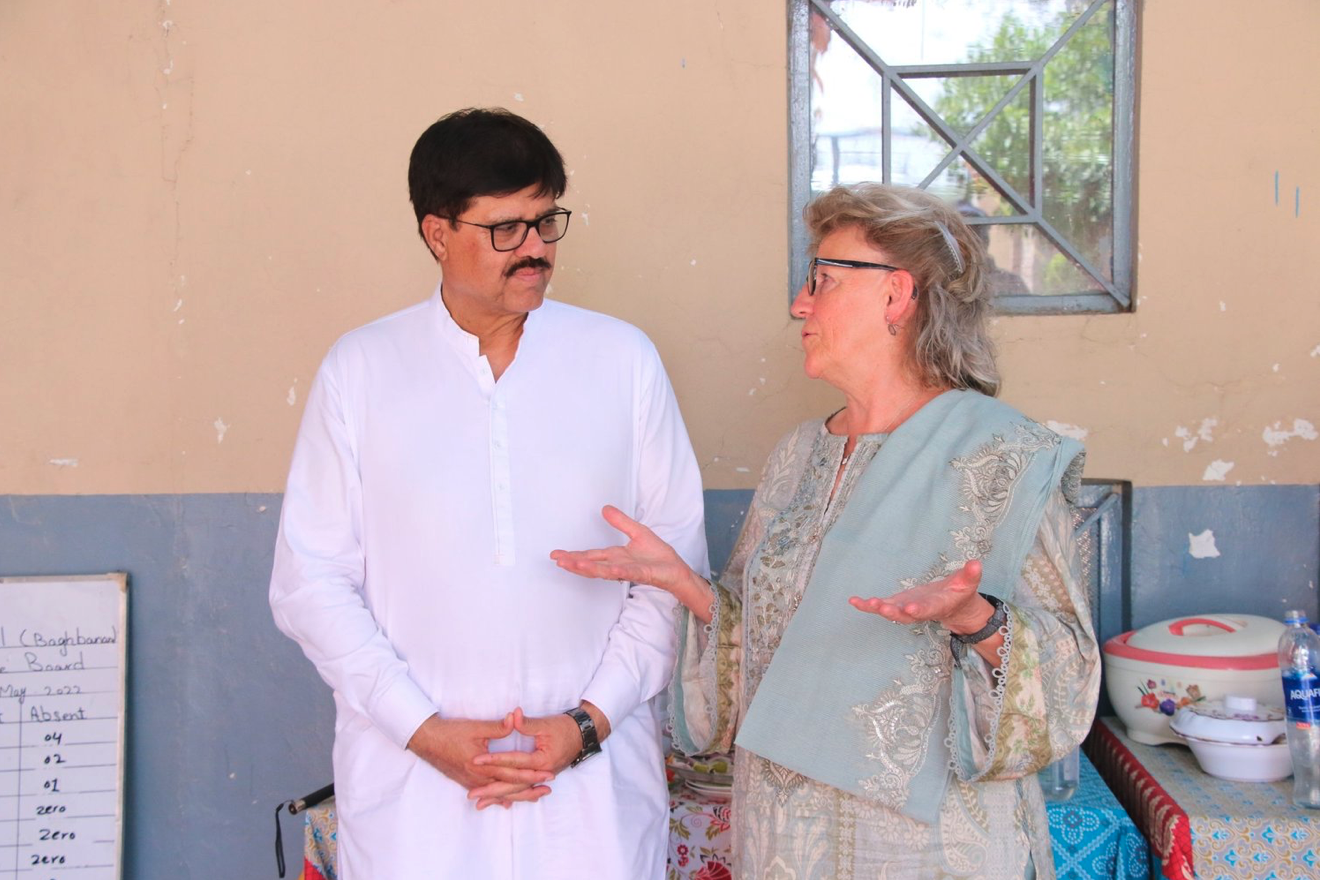Our interview with Helen Bingley, CEO of Abaseen Foundation UK
TMD’s Marketing and Research Officer Joey Baker chats to Helen Bingley, CEO of Abaseen Foundation UK, about her life long commitment to charity work. Abaseen Foundation is a charity which supports people in rural North West Pakistan to find a path out of poverty and towards a brighter future.
Who are you and what is your role at Abaseen Foundation?
My name is Helen Bingley. I am a founder member of Abaseen Foundation, and I am one of two CEO’s at Abaseen.
I'm in the UK, and my counterpart in Pakistan is Mukhtiar Zaman. Together, we’ve been raising money and doing projects there for the last thirty years – all in a voluntary, unpaid capacity, which we’re both very proud of.
My role as a CEO is to put together a board of trustees, put in place good governance that gives people confidence, and then, without shame, extract as much money from people as I can — whether it's big grant-makers or ordinary folk — to feed into our projects.
My role is crucial because most of our projects are funded by grants from the UK. However, our partners in Pakistan drive the design of the work we do. Mukhtiar’s team works with the community, for the community, to develop sustainable projects that the community can eventually take over and own. We don't support anything that develops dependence on us.
How did you get your start in charity work?
I've done charity work all my life.
My first charity — I was only 23 — I became a trustee of a centre for alcoholics in Lancaster. Then people come to know about you so you get asked to do things, and if you’re somebody that actually does something, and doesn’t just sit at meetings, you get asked to do even more.
I’m a doer. I’m not interested in anything that requires sitting. So I was asked to help develop a woman’s refuge in Lancaster. Then I got involved with Mind in Furness, the mental health charity, where I’m currently vice chair. I’ve been doing that for nearly 20 years.
Outside UK, I stay focused on my work in Pakistan because it requires lots of detailed attention, without which it would just dissipate.
What motivates you in your charity work?
I originate from an extremely poor background. I’ve always been driven to make the world a better place for the least fortunate, because I know what it's like to have nothing.
When I was a child, my mum used to send us to the shops to get food ‘on the tab’. She would say, “Right, what are we having for tea tonight kids? Are we having chips and egg, or for a change, shall we have egg and chips?”. That’s as good as it got.
I don’t know how in that deprivation I developed a sense of, ‘There but for the grace of god go I’, but I feel blessed I was able to rise above it all to help people that haven’t been as lucky.
For example, the project at Abaseen I love the most is with the children that work on the brick kilns. These are children in bonded labour and they're dead by the time they’re 38, living in the direst circumstances. It’s just not fair.
Is your upbringing something you talk about with potential funders, trustees, people new to Abaseen?
Well, I used to be ashamed of my background but I’m quite proud of it now. When I’m approaching funders, I don’t mind being plausible.
My dad was one of many children and his father was an alcoholic. My dad’s work included digging graves and emptying dustbins. He did not have a good education.
When funders ask, ‘Why are you doing this?’, I say it's because I love these kids, and I know: I might not have lived on the brick kiln; I might not be dead at 38; but I might have been, so to speak. I could've taken a different path.
What led you to go to Pakistan for the first time?
I met Mukhtiar when I was a chief executive in the NHS and he was a consultant doctor. He was an extremely good consultant doctor, and could have made a lot of money, but he wasn’t happy — he’d left his extended family back in northwest Pakistan.
He wanted to go home to set up what would become Abaseen and he wanted me to help. I was deeply involved with other voluntary projects at the time, and so I actually said to my PA, “When this guy rings, don’t put him through — I can’t help, I’m too busy”.
Anyway, it took Mukhtiar three years to get me on board. In those years, I did a big mountain challenge, raised a lot of money and gave it to him, saying, ‘there you are, that is my contribution’. Well, he didn’t go away. Eventually, he asked me to visit Pakistan just once, and if I didn’t like it he’d leave me alone. I went and rest is history.
Can you tell me more about your friendship with Mukhtiar?
Our relationship is somewhat unique.
Now, Pakistan is a male-dominated society. It’s so conservative, you can’t even imagine. It’s massive that a woman like me, in a position of authority, is not only accepted, but when I’m over there I never get anything other than respect.
The other thing that’s unusual: if a man from a Muslim culture calls you his sister, there is no greater honour. Mukhtiar considers me his sister and I consider him my brother — that isn't to say ‘sibling’; it means I am his responsibility and he is mine.
So we’re very close, we think alike, and our hearts are in the same work. We’re able to do a lot more working together than we could otherwise do working separately.
What are you most proud of in your working life?
There are two things I’m extremely proud of, and these are both the things that I got my OBE for.
One is setting up Abaseen Foundation. I don't know anybody else that's got anything so wonderful, that they could be so proud of.
And secondly, Mind in Furness was in serious financial trouble when I started there. That is now one of the most successful Minds in the country and has recently taken over two other Mind branches nearby.
There are plenty of other things I’m proud of in my professional career with the NHS, but I got payed for them so it feels a bit different.
Is there any single issue you've encountered in your voluntary work that you believe deserves more attention?
Women's health. And I don't just mean women having babies.
You’ll have seen our flood relief efforts, and what we’re doing regarding female hygiene and menstruation — I mean, those words don't get spoken about in Pakistan or in the UK!
For us to be saying to our male colleagues, ‘As well as those sanitary pads, do you think we should provide some knickers?’, and they come back saying, ‘I already thought of that!’ — That is massive progress.
But there’s still more to do, in Pakistan and in this country, because we have period poverty in the UK too.
Do you have any projects coming up that you’re particularly excited about?
Again, this relates to women.
I’ve known some of the girls in our Abaseen schools since they started nursery. These girls have just sat their A-levels, and 24 of them have the grades to go to university. That's never happened in this part of the world, ever.
Unfortunately, only 3 of those girls’ families agreed for them to go to university, despite generous sponsorship offers from our donors.
The remaining girls protested to me when I was in Pakistan recently, saying, ‘Do not give up on us. Please find a way for us to go to university, we will study anything.’
So, we're now developing a degree college, affiliated with a university, and that's going to open in September 2022. We hope that, because the initial 3 have done so well in university, that soon a lot more families are going to have confidence in their girls going to our college.
It’s a really exciting time for Abaseen, and there’s a lot of hope for the future.
This piece originally appeared on Abaseen Foundation’s website. To discuss how we can help you improve your marketing and communications, get in touch.





